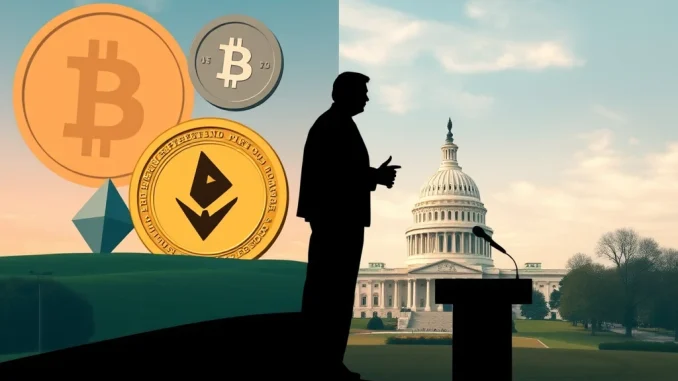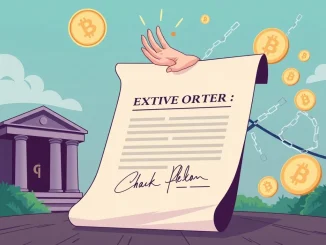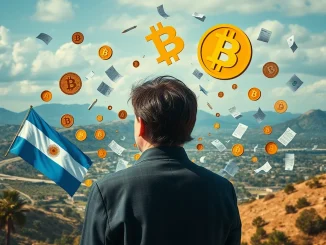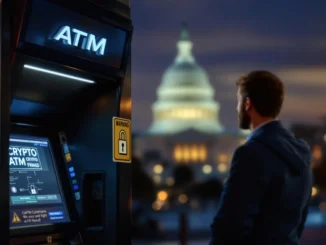
The world of cryptocurrency often intersects with politics, and a recent statement from a U.S. Congressman has ignited debate regarding Trump crypto ventures. U.S. Representative Gerry Connolly, a Democrat, has voiced strong concerns, telling DL News that the involvement of former President Donald Trump and his family in cryptocurrency activities, including launching their own meme coin, amounts to “open corruption.”
What’s Behind the ‘Open Corruption’ Claim?
Congressman Connolly’s remarks are pointed. He specifically highlighted what he views as conflicts of interest during the initial period of the Trump administration. While the interview focuses on current activities like the meme coin launch, Connolly drew a parallel to past actions, suggesting a pattern of behavior that favors certain figures within the digital asset space.
According to Connolly, the family’s crypto activities, combined with perceived preferential treatment towards individuals in the industry, paint a picture of impropriety. This isn’t just about personal investment; it’s about a former President and potential future candidate engaging directly in a market that is currently under intense scrutiny for regulation and ethical considerations.
Why is Political Crypto So Controversial?
The involvement of high-profile political figures in cryptocurrency raises several questions:
- Conflicts of Interest: How do personal investments or ventures in crypto affect a politician’s stance on crypto regulation or policy?
- Market Influence: Can a politician’s endorsement or creation of a crypto asset unfairly influence its market value?
- Transparency and Ethics: Are there sufficient rules requiring disclosure for politicians’ crypto holdings or ventures?
Connolly’s comments underscore the tension between individuals’ rights to invest and the ethical obligations of those in or seeking public office, especially concerning volatile and largely unregulated markets.
The Growing Debate Around Crypto Regulation
This incident also feeds into the broader, ongoing debate in the U.S. and globally about how to regulate the cryptocurrency market. Critics argue that the lack of clear rules makes the space ripe for manipulation, fraud, and unethical behavior. Proponents counter that over-regulation could stifle innovation.
Lawmakers are grappling with how to protect consumers and ensure market integrity without hindering technological advancement. The involvement of prominent political figures in crypto adds another layer of complexity to this challenge, potentially increasing the urgency for clearer guidelines on disclosures and conduct.
Navigating Government Crypto Involvement and Ethics
The line between personal investment and official conduct becomes blurred when politicians engage directly with assets like meme coins. Connolly’s use of the term “open corruption” suggests a belief that these activities are not just questionable but fundamentally undermine public trust.
While specific legal definitions of corruption may vary, the ethical implications of government crypto involvement are clear. Public officials are expected to avoid situations where personal financial interests could conflict with their public duties or create the appearance of impropriety.
Examining Crypto Ethics in the Political Sphere
This situation highlights the need for a robust discussion on crypto ethics, particularly for those in positions of power. What ethical standards should apply to politicians holding, trading, or launching cryptocurrencies? Should there be stricter disclosure requirements than for traditional assets?
The meme coin phenomenon itself adds another dimension. Often speculative and driven by community hype (or celebrity endorsements), meme coins are perceived by some as less about technology and more about financial speculation, making political involvement even more controversial in the eyes of critics like Congressman Connolly.
Conclusion: A Call for Scrutiny
Congressman Gerry Connolly’s accusation of “open corruption” against Trump crypto ventures serves as a stark reminder of the ethical challenges at the intersection of politics and the burgeoning digital asset market. It reignites debates about the need for clearer crypto regulation, transparency in government crypto holdings, and fundamental crypto ethics for public figures engaged in the space. As the crypto market continues to evolve, so too will the scrutiny on how those in power interact with it.



